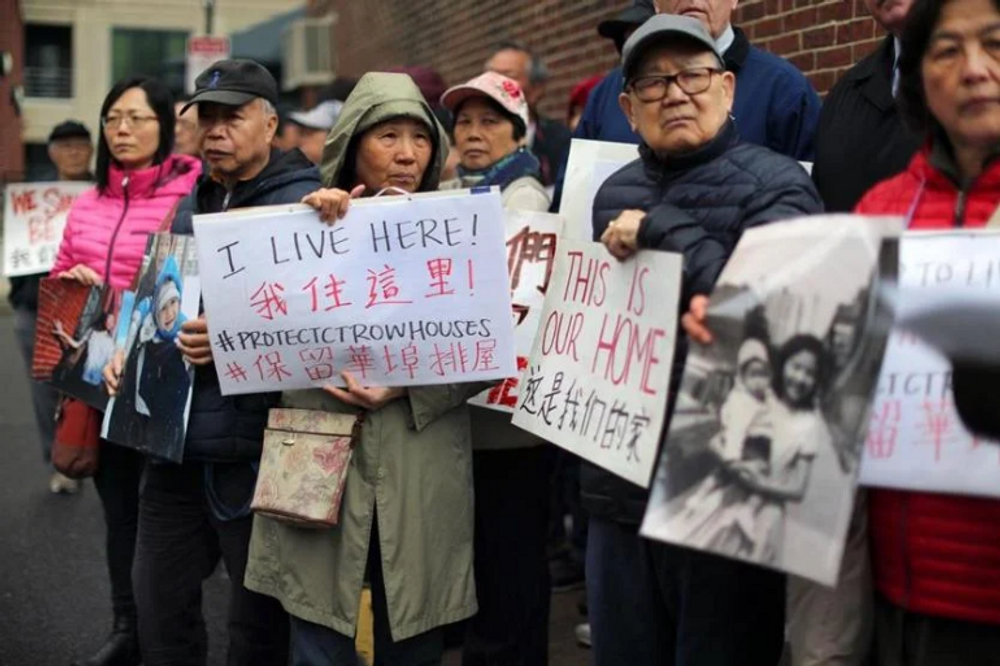Press Release
MA Appeals Court row house win protects housing affordability and resident safety in Chinatown, Boston

NEW YORK — Last week, the Massachusetts Appeals Court issued a decision in favor of Wendy and John Lee, who the Asian American Legal Defense and Education Fund (AALDEF) represented in their lawsuit against Tao Cai, a developer in Chinatown, Boston. The decision, which affirms a decision by a lower court in January 2022, helps keep Chinatown’s row house district safe and affordable. Greater Boston Legal Services’ Asian Outreach Center served as co-counsel in the lawsuit.
“The threats this developer posed on the neighborhood are emblematic of a larger problem not just in Boston’s Chinatown, but something we’re seeing in immigrant communities in New York, Philadelphia and around the country. Developers are driving up rents that displace lower-income residents and their construction plans inflict real health and environmental damage. Developers should be on high alert that communities will continue to stand up and take back the power that has long been used to hold them down,” says Bethany Li, legal director of AALDEF.
The Lees own one of the last remaining affordable row houses in Chinatown, buttressing a property owned by the developer, whose construction plans to build a 5-unit luxury condo threatened damage to the Lees’ building. The lower court found that the developer violated Article 6 of the zoning code, which requires developers to prove construction will not cause adverse impact. The judge concluded that “there’s real risk of structural damage” posed by the developer’s plans on the foundation and integrity of the Lees’ building. The judge further added that the risk of damage “is more than just speculative. It is quite likely.”
Community organizations in Boston have been pushing for changes to the city’s zoning code to create more opportunities for community input on development proposals and protection for the row house district. Currently, Chinatown does not enjoy the same protections as other neighborhoods, making it vulnerable to developers who implement construction that ends up hurting the very residents who enrich the neighborhood and give it the character that made it desirable in the first place.
“We need long-term solutions to protect Chinatown residents, especially immigrant, working class families at risk of being kicked out. Together with others in the community, we are advocating for zoning amendments that both protect the neighborhood’s historic character and curb speculation, protections that other Boston neighborhoods enjoy, and that Chinatown deserves,” said Lydia Lowe, director of the Chinatown Community Land Trust. “It is also unconscionable that the owner has left the building vacant, deteriorating, and with the front door open in all weather for some five years now. We should be protecting homes, not greed.”
###
For additional information, contact:
Stuart J. Sia
Communications Director
212.966.5932 x203
ssia@aaldef.org
